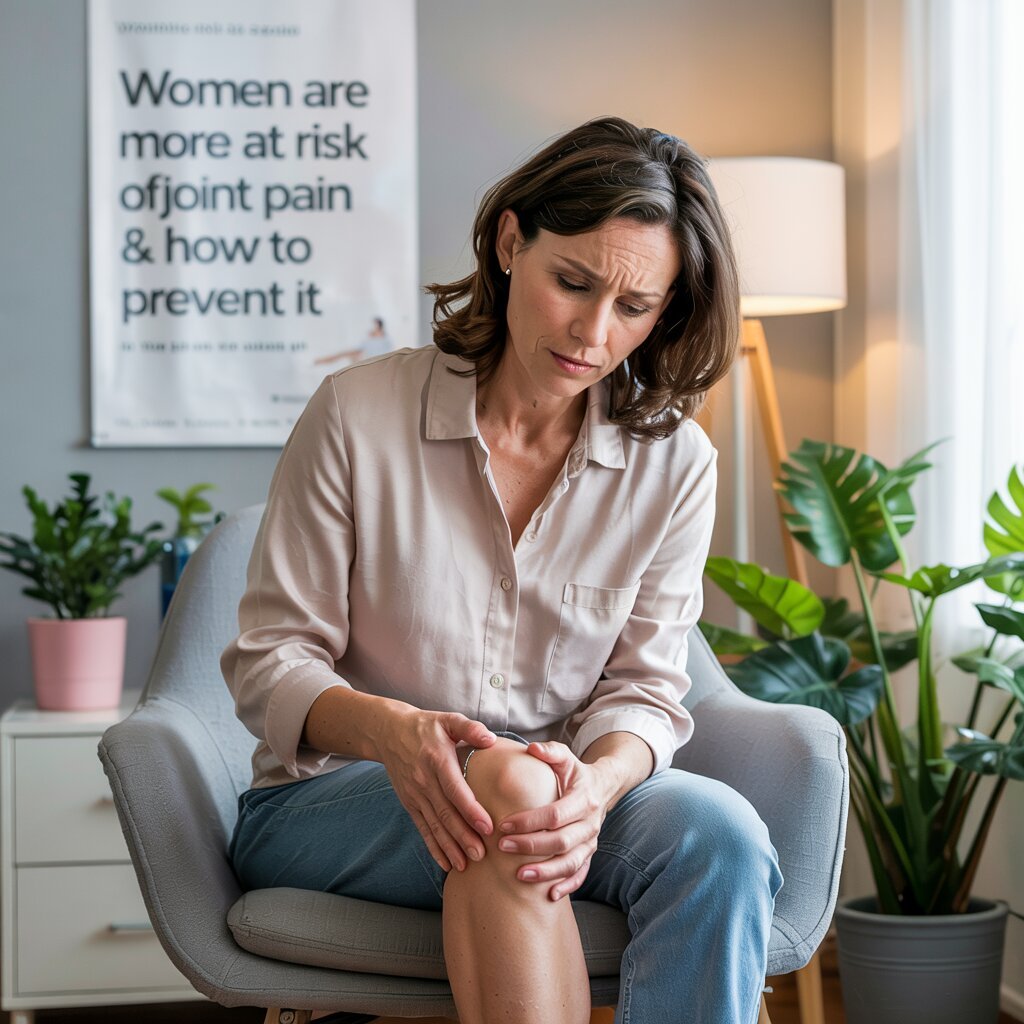Joint pain is a common concern, affecting millions of people worldwide. However, studies show that women are more likely to experience joint-related issues than men. Hormonal changes, bone density differences, and lifestyle factors contribute to this increased risk. If you’re struggling with joint pain or looking for ways to prevent it, this guide will provide valuable insights.
By reading this post, you’ll understand why women are more prone to joint pain and discover practical strategies to maintain joint health. We’ll also highlight when to consult a joint pain doctor specialist and how a pain and joint clinic can help manage symptoms effectively.
Why Women Experience More Joint Pain Than Men
1. Hormonal Changes and Joint Health
Estrogen plays a crucial role in maintaining bone and joint health. As women age, estrogen levels drop, especially after menopause, leading to increased inflammation and weaker joints. This hormonal shift makes women more susceptible to conditions like osteoarthritis and rheumatoid arthritis.
2. Differences in Bone Structure
Women generally have smaller, less dense bones than men. This structural difference means their joints bear more stress over time, increasing the risk of wear and tear. Osteoporosis, which weakens bones, is also more prevalent in women.
3. Increased Risk of Autoimmune Diseases
Women are more likely to develop autoimmune conditions such as rheumatoid arthritis and lupus, which affect joint health. These diseases cause the immune system to attack the body’s tissues, leading to chronic inflammation and joint pain.
4. Pregnancy and Joint Stress
During pregnancy, the body releases a hormone called relax in, which loosens ligaments and joints to prepare for childbirth. While this is beneficial for delivery, it can lead to long-term joint instability if proper care isn’t taken.
5. Lifestyle Factors
Sedentary habits, poor posture, and excessive high-impact activities contribute to joint issues. Many women experience joint pain due to repetitive movements or prolonged standing in certain professions.
How Women Can Prevent Joint Pain
1. Maintain a Healthy Diet
Eating a balanced diet rich in calcium, vitamin D, and omega-3 fatty acids supports bone and joint health. Foods such as leafy greens, dairy products, fish, and nuts can help reduce inflammation and strengthen bones.
2. Engage in Regular Exercise
Low-impact exercises like swimming, yoga, and walking can strengthen muscles around the joints, providing better support. Strength training also helps maintain bone density and prevent joint-related issues.
3. Maintain a Healthy Weight
Excess weight puts additional stress on the joints, particularly the knees, hips, and lower back. Maintaining a healthy weight can significantly reduce the risk of joint pain and arthritis.
4. Stay Hydrated
Cartilage, which cushions the joints, needs water to remain healthy. Drinking enough water keeps joints lubricated, reducing friction and pain.
5. Take Joint Supplements
Certain supplements like glucosamine, chondroitin, and collagen may help improve joint function and reduce inflammation. Consult a general physician in Indore before starting any supplement regimen.
6. Prioritize Proper Posture
Poor posture can lead to joint strain and long-term discomfort. Whether sitting at a desk or standing for long periods, maintaining proper posture reduces unnecessary stress on the joints.
7. Seek Professional Help When Needed
If joint pain persists, consult a bone and joint doctor. Early intervention can prevent minor issues from escalating into serious conditions. A visit to a joint pain clinic can provide tailored treatment options.
When to See a Doctor for Joint Pain
While mild joint pain can often be managed at home, certain symptoms require medical attention. Consult a general physician of Indore if you experience:
- Persistent or worsening joint pain
- Swelling or redness around the joints
- Stiffness that limits movement
- Joint pain that interferes with daily activities
- Symptoms of autoimmune diseases like fever and fatigue
FAQs About Women and Joint Pain
1. Why do women have more joint pain than men?
Women experience more joint pain due to hormonal fluctuations, structural differences, autoimmune conditions, and lifestyle factors.
2. What is the best way to prevent joint pain in women?
Maintaining a balanced diet, exercising regularly, staying hydrated, and keeping a healthy weight can help prevent joint pain.
3. When should I see a doctor for joint pain?
If joint pain is persistent, affects mobility, or is accompanied by swelling and redness, it’s best to consult a joint pain doctor specialist.
Conclusion
Women are at a higher risk of joint pain due to various biological and lifestyle factors. However, by adopting healthy habits and seeking professional care when needed, it’s possible to maintain strong and pain-free joints.
If you’re experiencing persistent joint pain, don’t ignore the symptoms. Visit a pain and joint clinic or consult a general physician in Indore to explore treatment options and take proactive steps toward better joint health.
For expert guidance and personalized treatment, book an appointment with a bone and joint doctor today!



